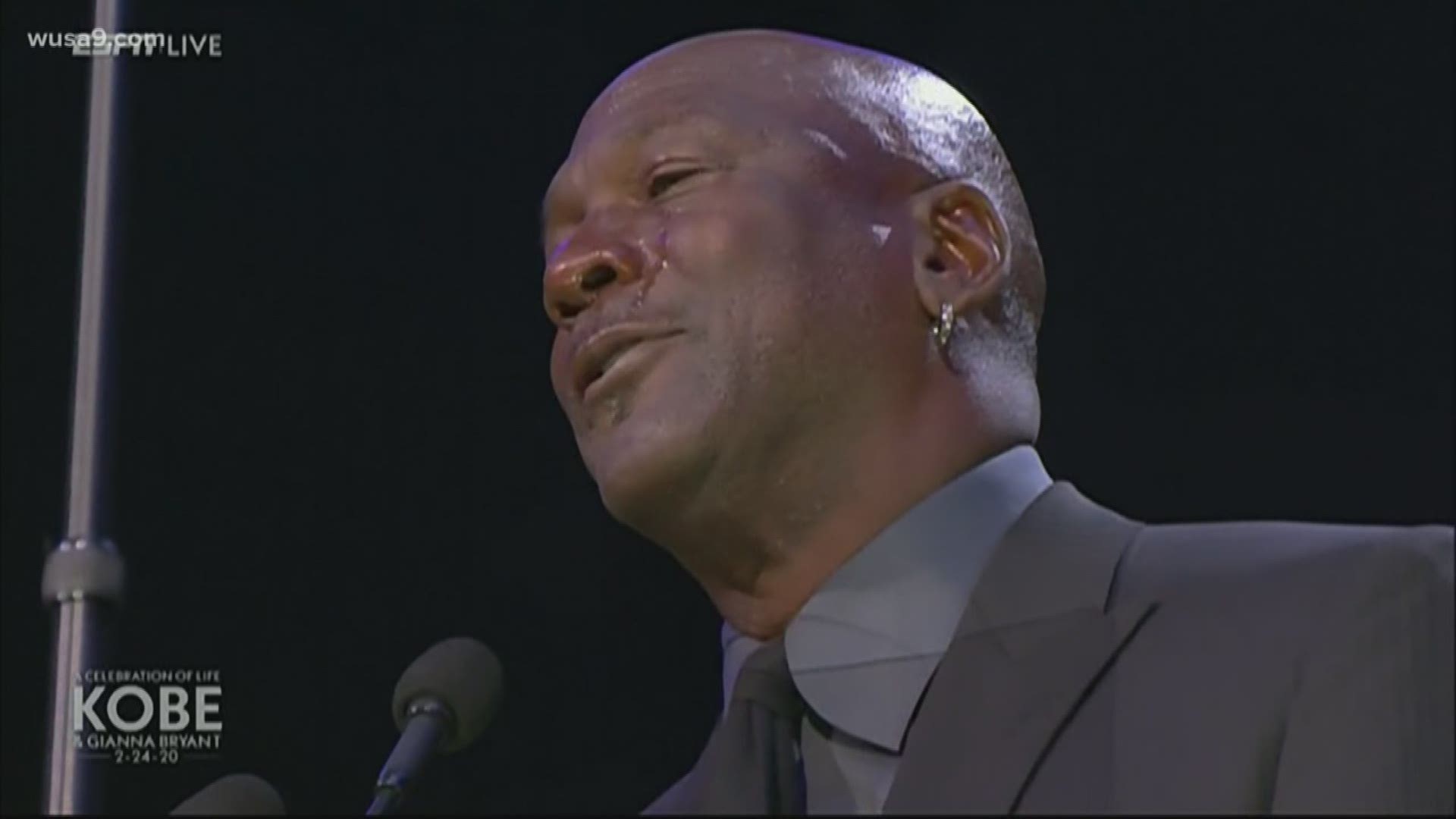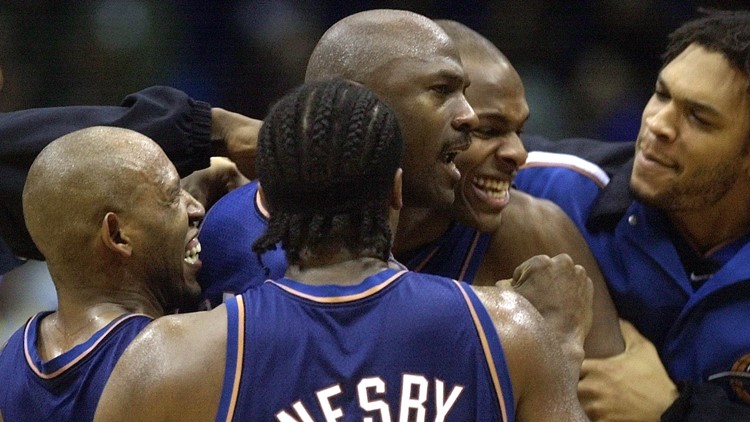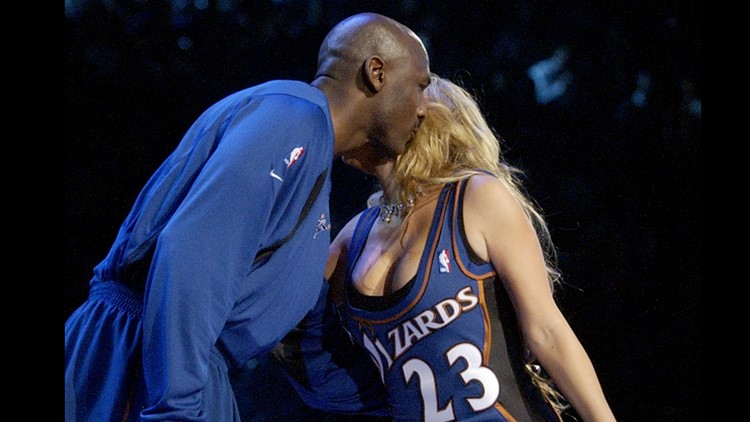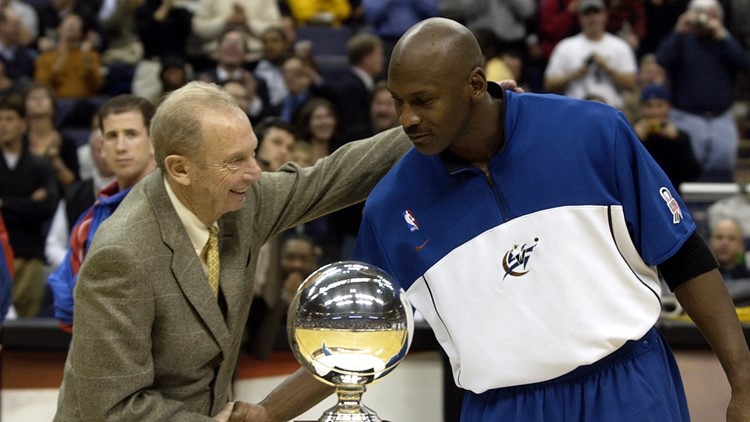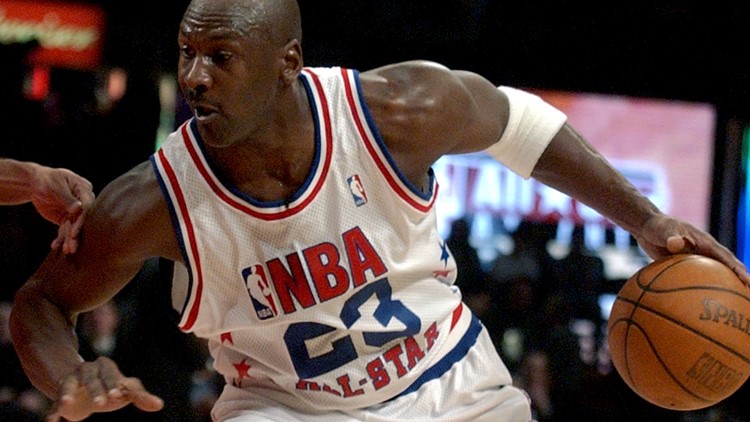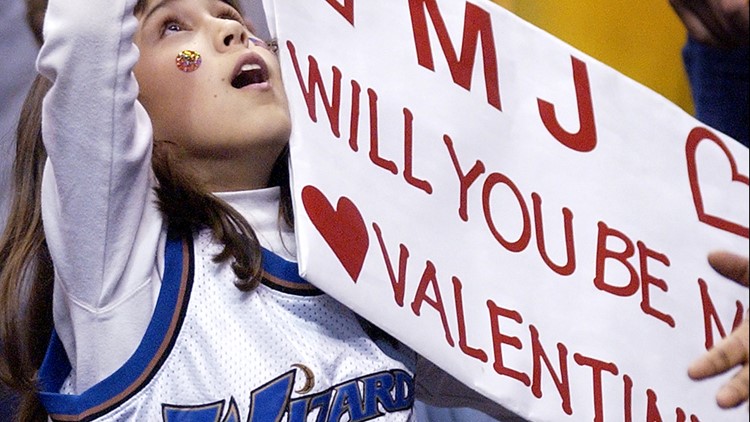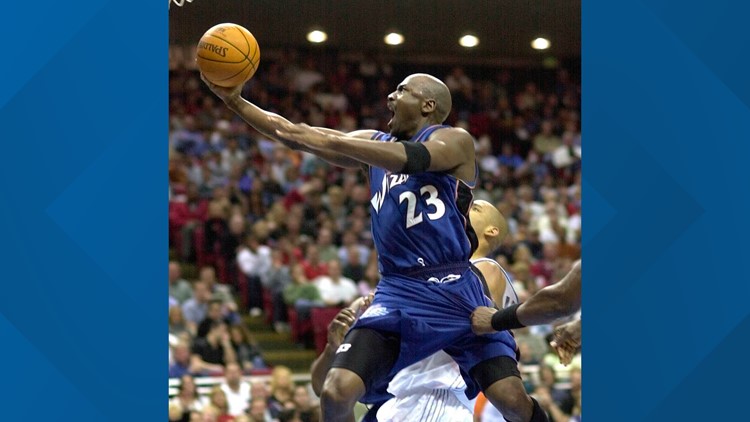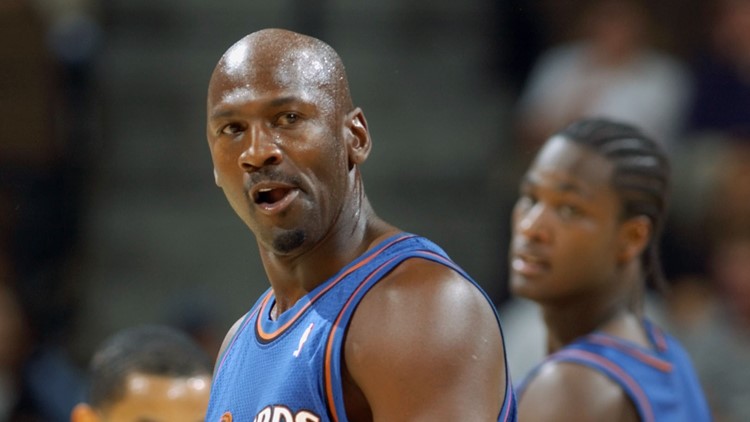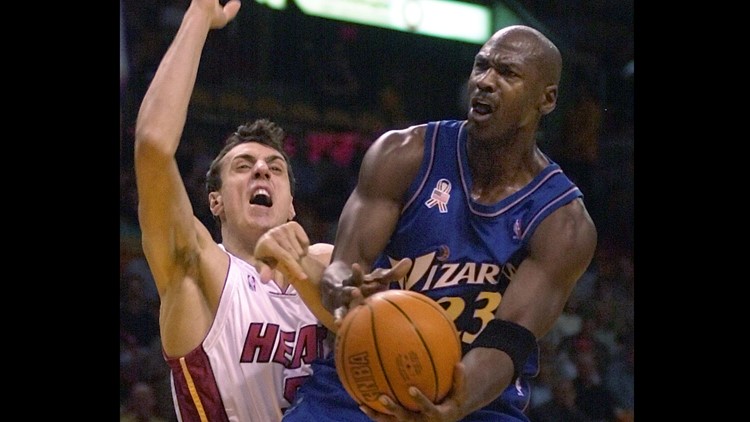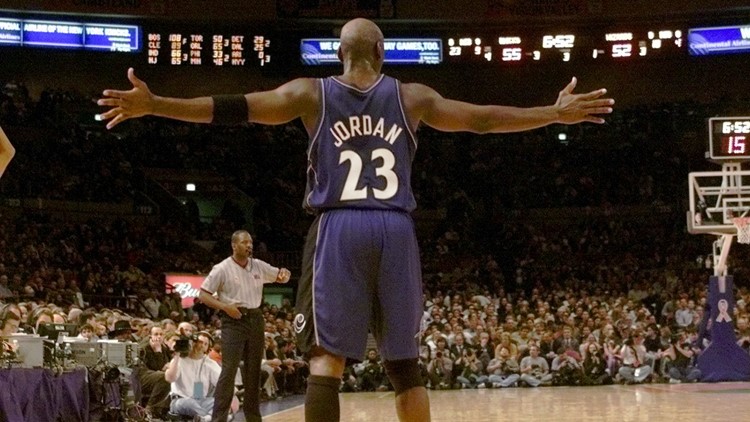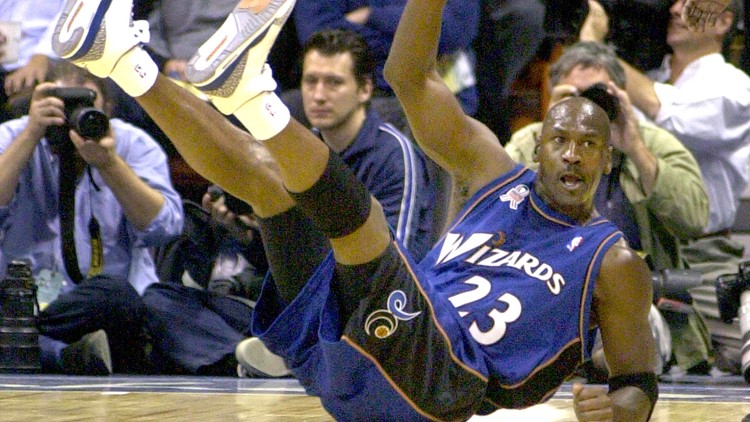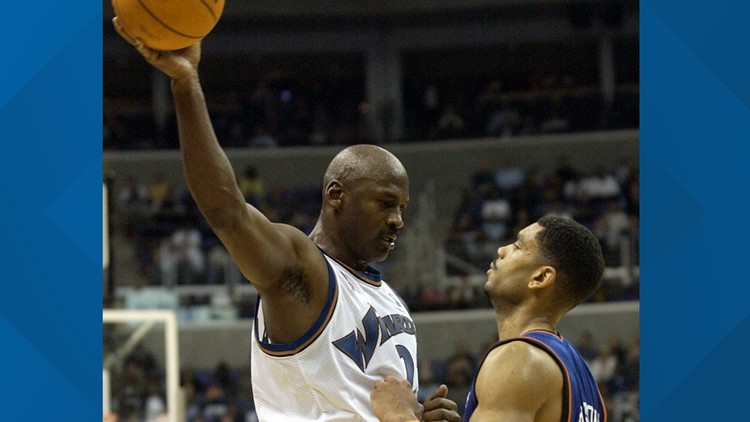WASHINGTON — Before you watch ESPN's docuseries on Michael Jordan and the Chicago Bulls called "The Last Dance," take a walk down memory lane of MJ's time in D.C., which included two seasons, and a bitter ending for arguably the greatest basketball player to ever live.
ESPN's "The Last Dance" covers the Bulls dynasty through the prism of the 97-98 season, Jordan's last with Chicago and final season before he retired for a second time.
His retirement from the Wizards would be his third and final retirement as a player, and many — including Jordan — were left with a bad taste in their mouth from the experience. Unfortunately, due to injuries, Jordan looked noticeably older and not like the star player he once was.
Jordan's time in D.C. may have been a letdown, but having one of the greatest basketball players of all time in your backyard was still a treat for Washingtonians.
Below is a timeline for Jordan-mania in D.C. and a look back at his time with the Washington Wizards:
1999-2000
- In late January, Jordan is announced as a minority owner of the Wizards, with a 10% stake in the team. He is also introduced as the team's director of basketball operations. Jordan's ownership could have jumped to 20% if Abe Pollin decided to sell his ownership.
- In his first year as an NBA executive, the team under Jordan's leadership finished the season with a 29-53 record.
"I'm going to have my imprints and footprints all over this organization," said Jordan to The Washington Post. "I look forward to turning this thing around. Right now we're an underachieving team."
2000-2001
- In his first full season as an NBA executive and partial owner, the Washington Wizards finished the season at 19-63 and finished seventh in the Atlantic Division. The season was determined to be less than expected via projections going into the year for the team.
- Jordan being around the team did seem to spark attendance, with the Wizards climbing spots in attendance from 21st to 19th. This would even skyrocket higher after he started playing during the 2001-2002 season, with the team becoming second in attendance out of 29 teams, according to Basketball-Reference.
2001-2002
- On September 25, 2001, Jordan announced that he would join the Washington Wizards for his 14th season in the NBA. According to The New York Times, Jordan planned on donating his basketball salary to help those impacted by the 9/11 terrorist attacks. To play again, the NBA made Jordan give up his 10% ownership in the team, and he resigned as director of basketball operations. He still served in the role, but in a silent capacity.
- Jordan's first game as a Wizard came against the New York Knicks on Oct. 31, 2001. He had 19 points, six assists and four steals in a loss. His first home game in D.C. would come on Nov. 3 — a 14-point win over the Philadelphia 76ers.
- On Jan. 4, Jordan breaks the 30,000 point mark while playing with the Wizards.
- Jordan's role in the 2001-2002 season ended after cartilage issues in his right knee. He led the Wizards in shooting for the season, even though he only played 60 out of 82 regular-season games for Washington. The team would end up with a 37—45 record.
MJ with the Wizards
2002-2003
- It was known around the NBA that 2002—03 would be Jordan's final season, and tributes were paid to him throughout the year.
- Jordan's last season with the Wizards saw him accept less playing time, and even embracing the role as a sixth-man for Washington, with knee injuries taking a toll. Jordan turned 40 on Feb. 17, 2003.
- Playing in his 14th and final NBA All-Star Game in 2003, he set a record for most All-Star Game appearances by an NBA player. The record would later be broken by Kobe Bryant.
- In his final game at the United Center in Chicago, which was his old home court, Jordan received a lengthy standing ovation in front of Bulls fans who watched him bring six championships to the city.
- Jordan played in his final NBA game on April 16, 2003, with a 15-point performance, but a 20-point loss to the Sixers. The Wizards record would finish at 37—45 for the second straight season.
- Following the season, Wizards majority owner Abe Pollin fired Jordan, ending his connection with the team. MJ himself said later in a 60 Minutes interview that if he had known that was going to happen, he may have not played at all after retiring from the Bulls. Pollin pointed to moves Jordan made previously in the position as president of basketball operations for justifying his move to let go of Jordan.
- In 2010, Jordan became the majority owner of the Charlotte Bobcats, now the Hornets.
"The Last Dance" is a 10-part series that will follow Jordan and the Chicago Bulls through their final championship run in 1997-98, where Jordan won his sixth championship. The release date was moved up by two months amid the coronavirus pandemic.
Below is a sneak peek from ESPN of "The Last Dance."

